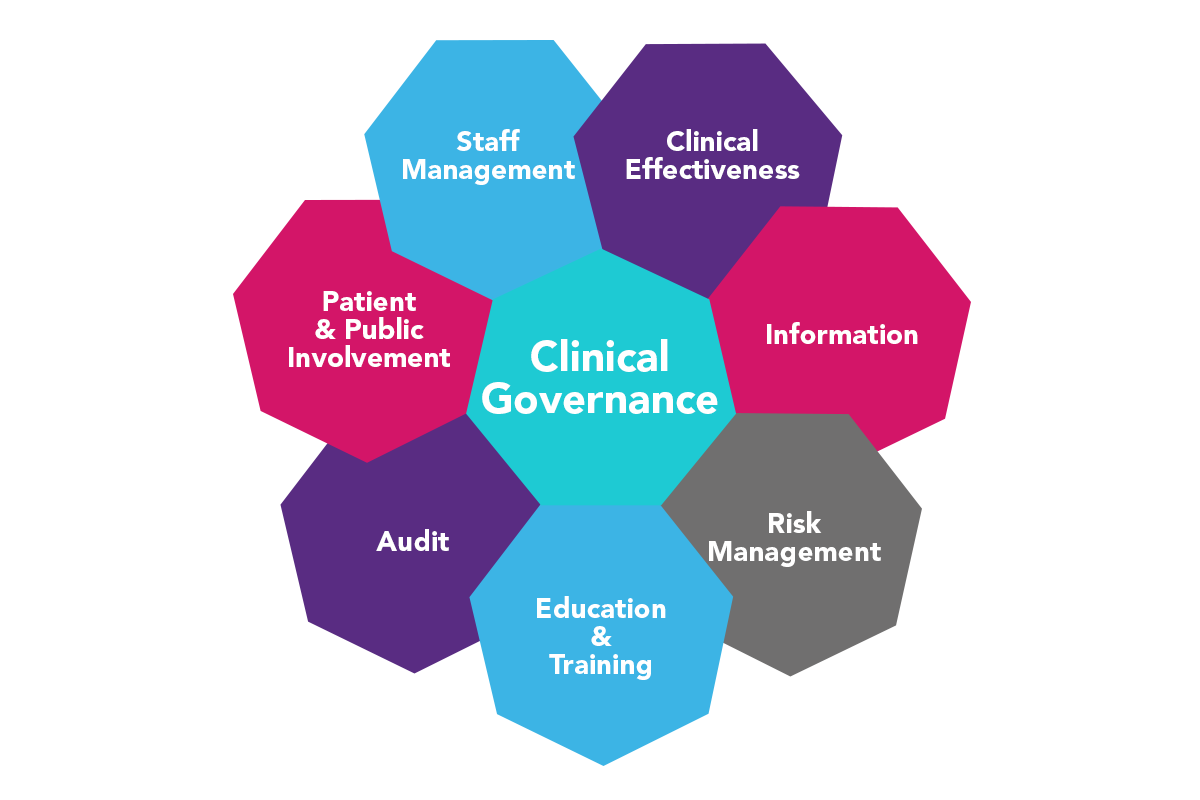Clinical Governance

Clinical Governance in Daily Clinical Practice
Clinical governance is all about ensuring that every aspect of patient care—whether delivered by individual professionals or entire teams—is safe, effective, and continually improving.
As a healthcare professional, embracing clinical governance means taking responsibility for the quality of care you provide, using evidence-based approaches, and engaging in ongoing learning and reflection.
By showing a strong grasp of these principles, you highlight your commitment to patient safety, transparency, and professional development—qualities highly valued in an ST3 interview scenario.
The 7 Pillars of Clinical Governance and Their Day-to-Day Application
- Clinical Effectiveness:Always aim to provide care based on the latest evidence and best practice guidelines.
- In your daily work, this could mean reviewing recent literature, discussing challenging cases with colleagues
- Auditing outcomes to see if treatments achieve the desired results.
- Continuous improvement is key—use feedback from patients and your team to refine your approach and ensure optimal patient outcomes.
- Risk Management: Patient safety is a priority. Actively identify potential risks—from medication errors to communication gaps—and work with your team to prevent them.
- Encouraging open reporting of near-misses and incidents allows your team to learn from mistakes and prevent future harm.
- Risk assessment
- Implementing preventative measures
- Patient and Public Involvement: Involve patients in decisions about their care and invite feedback on their experiences.
- Inviting patient feedback
- Involving patients in decision-making processes / service design
- Ensuring services meet the needs of the community
- Audit: Regularly auditing clinical processes and outcomes helps you verify that care meets set standards.
- Regular Audit
- Comparison with peers
- Actioning results of Audit
- Staff Management: Effective, compassionate care depends on a skilled and motivated team.
- Support colleagues by promoting professional development opportunities, offering mentorship to junior staff, and contributing to a positive working environment.
- In practice, this could mean suggesting additional training sessions or volunteer teaching time for peers.
- Emphasise that well-supported teams deliver better patient outcomes.
- Education and Training: Commit to lifelong learning.
- Stay updated on emerging evidence, new technologies, and evolving clinical guidelines.
- Keep track of recent courses or e-learning modules you’ve completed, and share helpful resources with your team.
- Showing that you adapt to change and enhance your skill set underlines your forward-thinking approach and readiness for more senior roles.
- Information Management: Accurate, secure data underpins quality care.
- Ensure patient records are up-to-date, communicate clearly with your colleagues, and protect confidential information at all times.
- Use digital tools wisely—if your organisation employs clinical governance software or dashboards, engage with these resources to track outcomes and spot improvement opportunities.
Why These Principles Matter ?
In an interview, demonstrating familiarity with clinical governance principles—and explaining how you’d integrate them into daily practice—shows your readiness to deliver high-quality, patient-centred care.
Whether discussing how you’d respond to an incident report or how you’d engage patients in shared decision-making, focusing on these pillars helps you frame your answers with structure, insight, and a genuine dedication to continuous improvement.
Mnemonic Word: SPACIER
S - Staff Management
Focus on supporting, developing, and assessing staff to maintain a skilled and motivated workforce.
P - Patient & Public Involvement
Engage patients and the public, listening to feedback and involving them in decision-making to improve care quality.
A - Audit
Regularly review clinical practices and outcomes to ensure they meet standards, using findings to drive improvement.
C - Clinical Effectiveness
Provide care based on evidence, guidelines, and best practices to achieve the best possible patient outcomes.
I - Information Management
Handle patient data accurately, securely, and effectively, ensuring confidentiality and accessibility for informed decision-making.
E - Education & Training
Continuously develop staff knowledge and skills, adapting to new evidence and innovations in healthcare.
R - Risk Management
Identify, assess, and mitigate risks to enhance patient safety and prevent errors and adverse events.
Conclusion
By understanding and applying the seven pillars of clinical governance, you not only improve patient outcomes and experiences but also strengthen your position as a thoughtful, proactive candidate.
Whether it’s conducting audits, managing risk, or involving patients in their care, these principles serve as a roadmap for delivering excellence in everyday clinical practice. Showcasing this understanding in an interview will reassure your potential employers that you are committed to quality, safety, and ongoing professional growth.